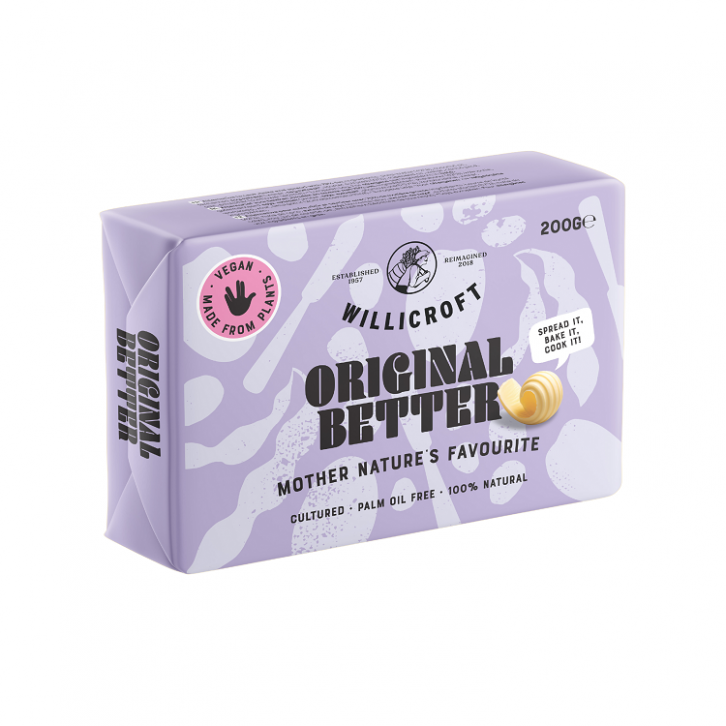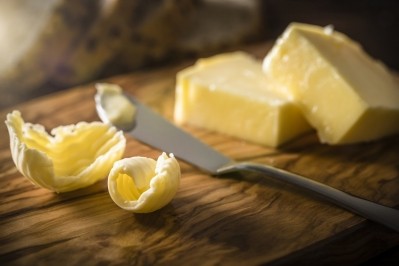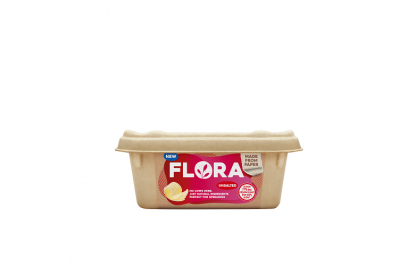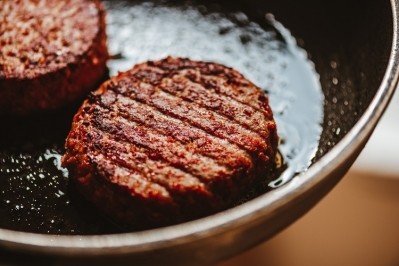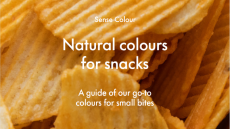Butter’s time to shine? The innovations churning up traditional spreads
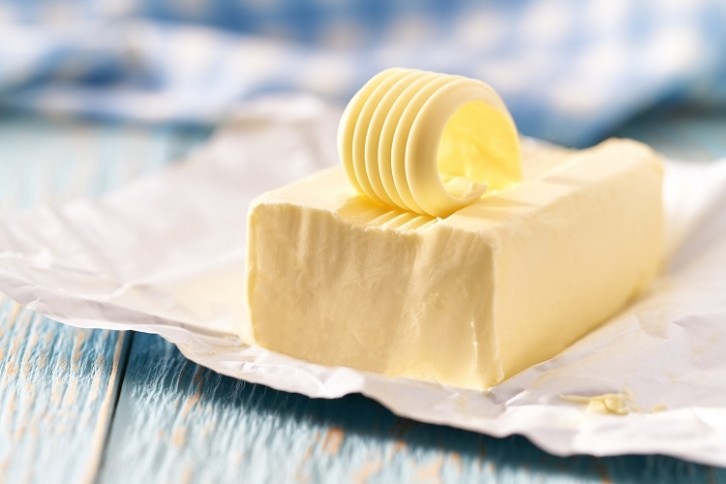
Butter is big business. Made from the fat and protein components of churned cream, butter on a global scale is expected to bring in over $46bn (€42.6bn) in revenue this year alone.
The market is largely dominated by heritage brands. Take a stroll down the dairy aisle and you’ll spot Danish butter brand Lurpak (owned by Arla Foods), Ireland’s Kerrygold (owned by Ornua), and a splattering of supermarket own-brands.
In dairy-free butter alternatives, Upfield-owned brands such as Flora and I Can’t Believe It’s Not Butter, dominate.
But change is afoot in the butter and dairy-free spread categories, with new brands and innovations coming to market. From playing with chilli and herb flavourings to leveraging precise fermentation processes and developing new fat solutions, companies are shaking up traditional butters and spreads.
Are butter and plant-based alternatives having a moment?
In the UK, start-up All Things Butter is looking to disrupt the conventional butter market with its ‘chef-led’ approach. Founded by Toby Hopkinson and chef Thomas Straker, All Things Butter, aims to put ‘British farming at the forefront’, while shaking up the category.
Its current range includes classic salted and unsalted SKUs, as well as Garlic & Herb and Chilli offerings.
The duo had observed minimal innovation in dairy butter, and so developed the brand to fill a gap for new, exciting, and proudly British butter. “For the past 30 years or so, the butter industry has been dominated by heritage led dairy brands and has seen little innovation, losing out market share to plant-based brands which have been growing on supermarket shelves,” co-founder Toby Hopkinson told FoodNavigator. “We wanted to change this, and saw a gap in the market for a disruptive dairy brand…
“We think it is safe to say that unique, flavoured butters like ours are having a moment!”
In the Netherlands, co-founder of plant-based cheese company Willicroft, Brad Vanstone, agrees the broader category is undergoing a shakeup. The start-up, which recently expanded into plant-based butters, is preparing to launch its Original Better product. Vanstone describes Original Better like ‘butter, but better’.
The product is made using precise fermentation techniques to replicate butyric acid, the core flavour component of dairy butter (precise fermentation uses non-genetically modified microorganisms such as bacteria to re-create specific flavours). The product is made with known ingredients (in no particular order: soybeans, shea butter, rapeseed oil, sunflower lectin, coconut oil, salt, and carrot juice) and Willicroft claims it is responsible for seven times fewer emissions than dairy butter.
“The margarine category across Europe – which is primarily plant-based – is worth one-third in value of all butter sales. It’s arguably the ‘OG’ plant-based segment. However, it’s had very little innovation for some time,” Vanstone told this publication.
When researching the Original Better project, the start-up noted consumer and industry demand for alternatives that both taste and function like butter. “Margarine is a simple fat composition that is really just a spread. You can cook and bake with it, but you have to make concessions.
“We’ve created a product that tastes like butter by replicating butyric acid, the key component of dairy butter. It also has the same melting temperature as dairy butter.”
Not only is the global butter market bringing in $46.6bn (€42.6bn) in revenue, but it is on an upwards trajectory: according to Statista this will increase by an annual CAGR of 6.38% between now and 2028.
Vegan plant-based butter substitutes are also on the rise, with the market projected to grow from $2.6bn this year to $2.8bn by 2032, according to Market Research Future.
And the global margarine market (not to be confused with plant-based butter alternatives, since some margarines contain trace amounts of dairy) brings in an estimated $22.13bn according to Mordor Intelligence, with expectations it will reach $24.94bn by 2028.
Outside of the branded space, B2B ingredients supplier Bunge is also innovating in plant-based alternatives to butter. And similarly to Willicroft, it has functionality front-of-mind. The company has developed a fat solution called Beleaf PlantBetter for food manufacturers and bakers made from a blend of primarily coconut, cocoa butter, rapeseed and lecithins.
Earlier this year, Bunge launched the retail version of Beleaf PlantBetter: Eleplant.
“Butter will always remain relevant. But we also see that both food manufacturers are increasingly looking for the replacement of animal fat/milk fat, mainly because of its environmental impact,” explained Feike Swennenhuis, marketing director Europe at Bunge.
But even though they may be looking for more environmentally friendly options, they are unwilling to sacrifice taste or functionality. Volatility in butter pricing over the past year adds to Bunge’s belief that it’s found a winner in its 1:1 replacement for standard dairy butter. It’s 50% less carbon-intensive and reduces costs while gaining stability in the face of currently volatile dairy butter prices, reiterated Swennenhuis.
Do butter (high fat) and margarine (ultra-processed) struggle with image issues?
According to the NOVA classification system, the most widely used to assess food processing, margarine is an ultra-processed food (UPF). UPF has found itself in the hot seat of late, as a growing number of studies link consumption to poor health outcomes.
At the same time, butter is made up of around 80% fat – a nutrient shunned by many health-conscious consumers. As consumers grapple with this nutritional dilemma – high-fat or ultra-processing – will one side come out on top?
Bunge was unsure of the extent to which fat content overall is a barrier for consumption of butter. But what it has noticed is that consumers and food manufacturers take sustainability and pricing into consideration more when selecting ingredients. “Still, taste and functional always comes first,” said Swennenhuis.
As to ultra-processing, Bunge stressed its Beleaf Plantbetter offering is composed of ‘easily recognisable’ ingredients from ‘all natural’ sources. “There is no hydrogenation, and it has the same easy processing and versatile functionality as standard dairy butter. Other qualifications include that it is vegan, non-GMO, palm free, lactose-free, and soy-free.”
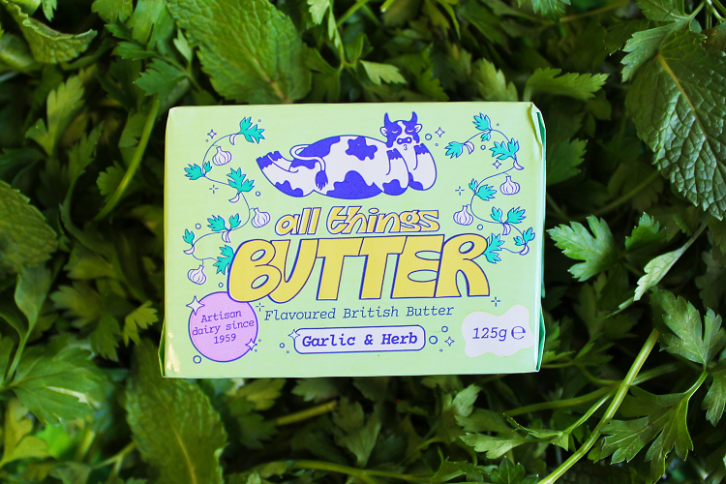
From Willicroft’s perspective, which as a B2C brand is dealing directly with consumers, health is a big driver behind decisions to purchase margarine over butter. Butter is made up of 80% fat, a high proportion of which is saturated, Vanstone told this publication. “And many have 1-2g of trans fats, which are the worst of all.”
Original Better is looking to set itself apart from conventional dairy butter by containing 15g less saturated fat and no trans fats. “It’s also high in omega and based on eight 100% natural ingredients. This will form a super important part of our communication around the product.”
But UK start-up All Things Butter believes good quality butter is still very much on consumers’ radar. “The strong retailer interest we have received shows that there is still high demand out there for organic, British butter like ours,” co-founder Hopkinson told us.
“We want to show consumers that buying high-quality, 100% organic dairy butter can significantly enhance everyday cooking – butter is a natural ingredient that actually holds nutritional value.”
Whether new flavours or ingredients, consumers want innovation
For butter and dairy-free spread innovators, the time to disrupt is now. When conducting research for All Things Butter, co-founders Hopkinson and Straker visited
![Founders[1]](/var/wrbm_gb_food_pharma/storage/images/_aliases/wrbm_medium/media/images/founders-1/16994517-1-eng-GB/Founders-1.jpg)
more than 30 supermarkets. Their conclusion was that the dairy category hadn’t been disrupted, with shelves ‘dominated’ by traditional brands.
“With no one fighting back against the dairy-free and plant-based products that were rapidly taking category share, it felt there was a perfect place to disrupt,” recalled Hopkinson.
As to whether consumers are adventurous in butter, or whether the standard salted/unsalted SKUs remain the firm favourites, the co-founder explained the decision to expand into Garlic & Herb and Chilli flavours came from a desire to show ‘how versatile butter is’ and the ‘wide range’ of ways it can be used day-to-day.
“Our salted butter is perfect served on toast, and our unsalted butter is ideal for day-to-day cooking and baking, and for those who want to experiment in compound butters with other added ingredients. Our flavoured butters…are great for cooking with meat and vegetables, or for using in pasta sauces for example – taking your food serves to the next level and elevating everyday dishes.”
In vegan butter, consumers deserve innovation, suggested Willicroft’s Vanstone. Big Dairy’s plant-based alternatives have been ‘really poor’, not just in butter but across the sector, he told this publication. “They’ve cut corners and offered very little innovation…we see a major opportunity to break through.”
At the end of the day, butter is a ‘universally’ loved item, and Willicroft believes that once it trials its product, there will be ‘no looking back’ for consumers.
“New trends are forever popping up with butter, so if you create a product that tastes and functions like butter but is better in terms of nutrition and emissions then it’s only a matter of time before it comes a mainstay in the fridge.”
